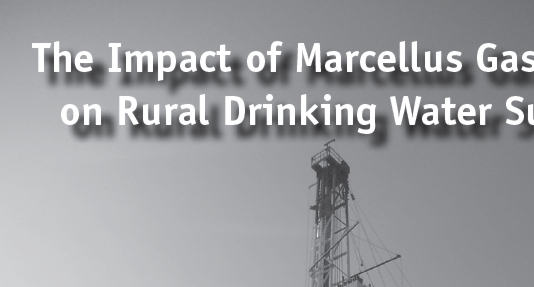Marcellus Gas Drilling Impact on Drinking Water
25.11.2011
Water Protection
The Center for Rural Pennsylvania has published the study "The Impact of Marcellus Gas Drilling on Rural Drinking Water Supplies."
The report states that "statistical analyses of post-drilling versus pre-drilling water chemistry did not suggest major influences from gas well drilling or hydrofracturing (fracking) on nearby water wells, when considering changes in potential pollutants that are most prominent in drilling waste fluids."
"Only one drinking water well appeared to be affected by drilling as evidenced by subtle increases in many of its constituents after drilling and fracking, including bromide, chloride, sodium, barium, total dissolved solids, hardness, and more. The presence of these constituents suggests possible mixing of the well water with waste fluids, flowback waters, or naturally occurring brine."
"When comparing dissolved methane concentrations in the 48 water wells that were sampled both before and after drilling (from Phase 1), the research found no statistically significant increases in methane levels after drilling and no significant correlation to distance from drilling. However, the researchers suggest that more intensive research on the occurrence and sources of methane in water wells is needed."






